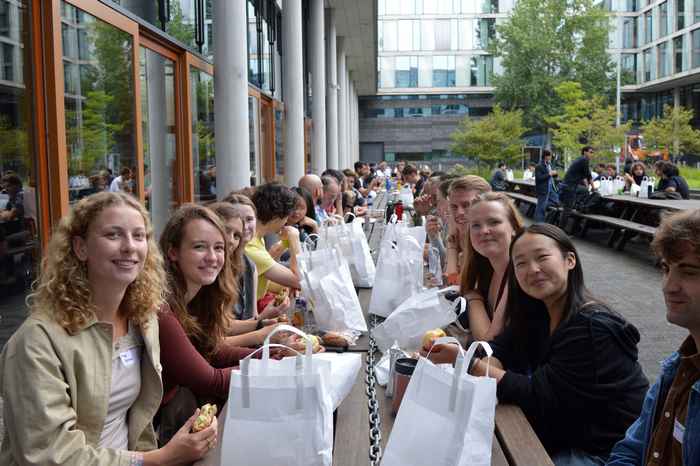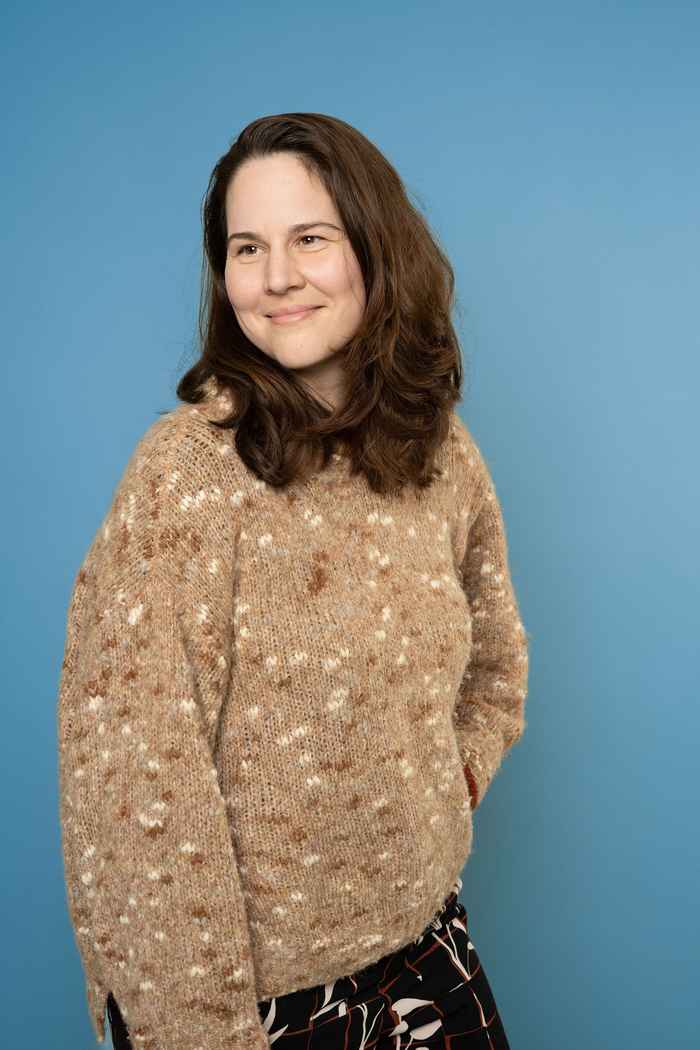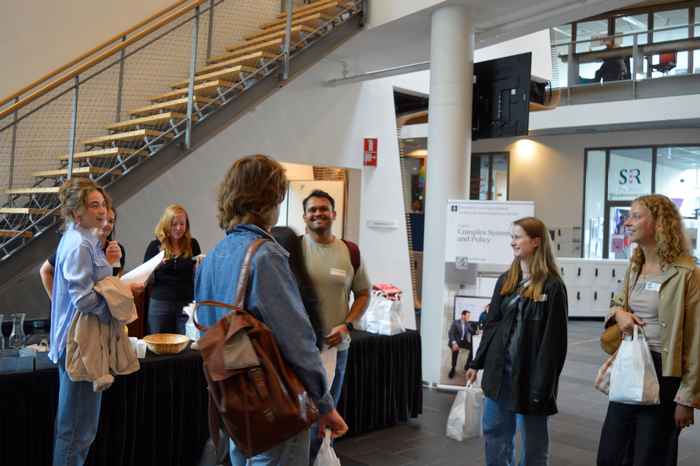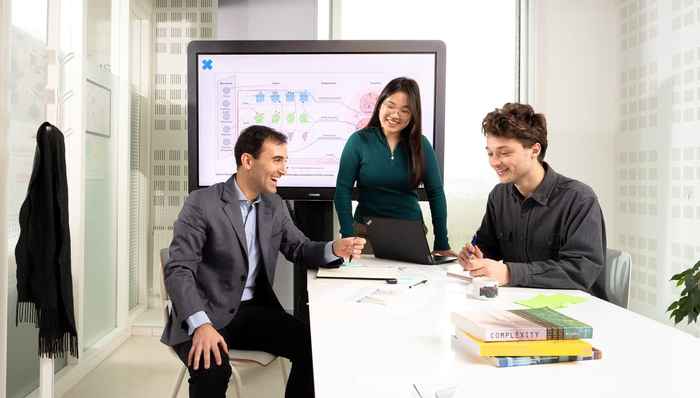First cohort of MSc Complex Systems and Policy kicks off
Pioneers building bridges between science and policy
9 October 2025

“The students are true pioneers,” says Lieke Mulder. “They’re bold, inquisitive, and learn from one another. As the very first cohort, they’ve quickly developed a strong sense of community – that pioneering spirit connects them instantly. It’s a perfect fit with the IIS.”
Thinking beyond disciplinary boundaries
The master’s programme brings together expertise from across the university. Lecturers from the IIS, Amsterdam UMC and IBED collaborate in teaching, enabling students to approach issues around health and sustainability in an integrated way.
“The group of 29 students comes from a wide range of academic backgrounds,” Mulder explains. “From political science to artificial intelligence – that diversity creates a dynamic mix of ideas. These are students who aren’t afraid to step outside their comfort zone – adventurous, curious, and driven to better understand the world. That’s the strength of interdisciplinary education: learning to speak each other’s language.”

Bridging analysis and policy
What makes the programme unique, according to Mulder, is the combination of theoretical depth, data analysis, and policy insight. “Students learn to build quantitative models and to understand how policy decisions are made. This allows them to bridge the gap between researchers who analyse systems and policymakers who act upon them. Alongside philosophical and societal reflection, they also work on quantitative modelling and data analysis, gaining a multifaceted understanding of complex systems.”
Learning by doing
As with many IIS programmes, Complex Systems and Policy emphasises challenge-based learning. Students work on real-world issues, currently focusing on food and sustainability. Their projects address the food system from both a health and sustainability perspective, exploring topics such as The Power of Cities in the Food System, Monitoring the Sustainability of Food, and Escaping the Ultra-Processed Food Trap.

Shifting perspectives
One of the first assignments revolved around “positionality”: from what assumptions do you and your discipline view a societal issue?
Mulder explains, “We ask students to deliberately adopt a position that’s not their own. For example, they might take on a conservative or progressive perspective and write a research proposal from that standpoint. It can feel uncomfortable, but that’s precisely why it’s valuable – you uncover your own blind spots and learn to listen to other ways of thinking.”
The discussions that arise from this are, according to Mulder, incredibly enriching. “Before you can tackle complex problems, you must understand the assumptions you bring to them. That reflective capacity makes students not only better researchers but also more nuanced thinkers.”

Collaborating with practice
Collaboration with societal and knowledge partners is a key element of the master’s. Students engage with real-world challenges in cooperation with organisations such as RIVM, Mérieux NutriSciences, the AMS Institute, the Municipality of Amsterdam (Amsterdam Food Strategy), and the Food Transition Coalition. In doing so, they experience how science, policy, and practice come together in addressing complex societal challenges.
Learning together – also as lecturers
Interdisciplinarity extends beyond the students – the teaching team itself is a microcosm of society.
“We work with colleagues from a variety of fields, from health sciences to human–environment interactions, and we often find that we see the same issue from very different angles,” Mulder says. “Those differences make teaching lively. We learn a great deal from each other and continually see how fruitful it is to connect different worlds.”
Pioneers with a mission
Mulder expects graduates to find their way into research institutes, government ministries, consultancy firms, and international NGOs.
“They’ll be the people who help unravel complex societal challenges and translate insights into policy – people with a systems perspective and a strong sense of responsibility. Exactly the kind of professionals the world needs right now.”